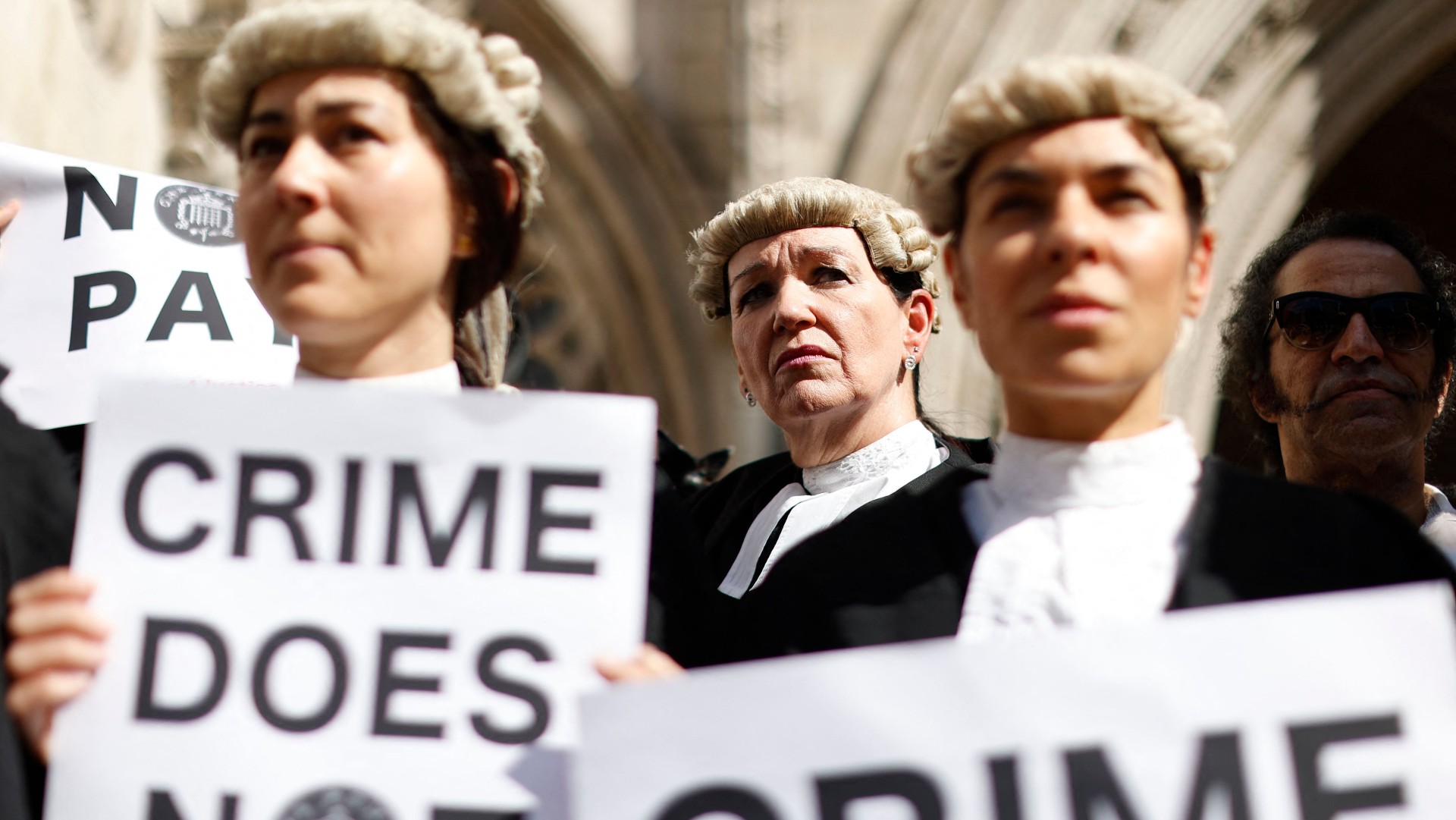Should criminal barristers be allowed to strike?
Prolonged dispute over cuts to pay and legal aid has led to indefinite walkout in September

A free daily email with the biggest news stories of the day – and the best features from TheWeek.com
You are now subscribed
Your newsletter sign-up was successful
Criminal barristers have taken the unprecedented step of voting for an indefinite and uninterrupted strike that will paralyse the justice system across England and Wales.
Over the summer, members of the Criminal Bar Association (CBA) have been striking on alternate weeks in a dispute with the government over pay, working conditions and legal aid funding. But on Monday they voted overwhelmingly in favour of escalating the action with a full walkout set to begin on 5 September.
‘Years and years of abject neglect’
“Quite simply, this strike has been years in the coming,” said BBC home and legal correspondent Dominic Casciani.
The Week
Escape your echo chamber. Get the facts behind the news, plus analysis from multiple perspectives.

Sign up for The Week's Free Newsletters
From our morning news briefing to a weekly Good News Newsletter, get the best of The Week delivered directly to your inbox.
From our morning news briefing to a weekly Good News Newsletter, get the best of The Week delivered directly to your inbox.
Ultimately coming down to cuts to pay and legal aid – where barristers represent defendants who could not otherwise afford a lawyer – the CBA said: “It is a decision to which we have been driven after years and years of abject neglect of the criminal justice system and the cynical exploitation of our time, effort and goodwill by successive governments determined to deliver justice on the cheap,” Reuters reported.
CBA vice-chair, Kirsty Brimelow QC, told BBC Breakfast the action was a last resort after barristers “have had to endure collapses in their income and underfunding” that have meant their income has decreased by nearly 30% since 2006.
According to The Lawyer, while at the top end 2% of barristers take home over £1m per year, nearly 12% earn less than £30,000. This is particularly true of criminal barristers, who according to the CBA make an average annual income after expenses of just £12,200 in the first three years of practice, driving 22% of junior criminal barristers to leave the profession since 2016.
The Guardian said this means barristers are being paid “less than the minimum wage for court hearings when travel and hours spent preparing are factored in – and not at all when hearings are cancelled”.
A free daily email with the biggest news stories of the day – and the best features from TheWeek.com
Although the government has accepted an independent review’s recommendation to inject an extra £135m a year into the criminal legal aid sector, the CBA argued the increase in fees under the deal will “not be sufficient to retain enough criminal barristers to keep the wheels of justice turning”.
Criminal barristers had been offered a 15% pay rise by the government, “but this will not be made effective immediately and will only apply to new cases, not those in the backlog”, said The Mirror, adding that “it fails to wipe out years of cuts”.
It falls well short of the 25% rise in pay for legal aid work called for by the CBA.
‘Wholly unjustified’
Justice minister Sarah Dines said the decision by barristers was “irresponsible” and “wholly unjustified considering we are increasing criminal barristers’ fees by 15%, which will see the typical barrister earn around £7,000 more a year”.
In The Telegraph former justice minister James Cartlidge went further. “If you have an organisation seemingly intent on indefinite strike action, no matter the cost to wider society, with demands that no government could acquiesce to,” he said, the only option left is “to rapidly recruit a Crown Defence Service to mirror the [Crown Prosecution Service], with lawyers who would have the security of a permanent post and, in return, the government of the day would have the certainty that it could keep the courts running.”
Yet, in the midst of a cost-of-living crisis and stagnant wages, there is sympathy for a group “not usually known as being a militant workforce”, said the Manchester Evening News.
Criminal barrister Adam King, writing for UnHerd, said that “on the surface, yes, it’s about money”. Barristers face “banker hours and teacher stress”, he said.
But what is clear is that “unlike teachers, train drivers, or even doctors” barristers participating in the walkouts “are risking serious professional disciplinary sanction. Strength of feeling is not an infallible guide to the merits of an argument of course, but here they do coincide. And these are actions, not words – actions that have never been taken before. I cannot see the Bar backing down.”
Impact on the courts
The walkout, which is set to coincide with the announcement of a new Tory leader and prime minister on 5 September, “will result in the vast majority of crown court trials in England and Wales being adjourned, while others could collapse entirely”, said The Guardian.
During the first 19 days of industrial action this summer, there were 6,235 court cases disrupted, including 1,415 trials, across England and Wales, said the paper.
The Mirror said the walkout will “worsen the 60,000 backlog in court cases”, but “if this industrial action ends in the government acceding to their demands, barristers will see it as a necessary evil”, argued the Manchester Evening News.
“Criminal barristers are incredibly angry,” said Casciani, “and it’s very hard to see how this stand-off can be resolved any time soon.”